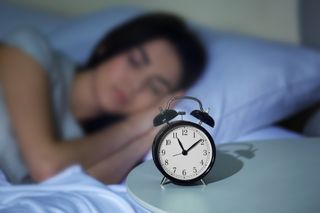Sleep

Everyone needs sleep, but many of us don't get enough. Here's the latest news on sleep, including the health effects of getting too little or too much, tips on getting more rest, and the science behind why we slumber.
Latest about Sleep

Night owl or early bird? How your 'chronotype' influences cognition
By Cindi May published
Your brain has an internal clock that influences how your mind functions over the course of a day.

Hitting 'snooze' can boost morning cognition, study hints
By Emily Cooke published
Did you hit "snooze" this morning? You're not alone, and the extra sleep may improve your brain function after getting up, a study suggests.

'Power naps' improve memory and lower heart disease risk, but long naps can have drawbacks
By Steven Bender published
Short naps at the right time of day can boost focus, help solidify memories and potentially improve heart health.

Can the menstrual cycle affect people's sleep and dreams?
By Lou Mudge published
Reproductive hormones may interfere with sleep quality and affect dreaming at different stages of the menstrual cycle.

Sleep apnea linked to changes in the brain's wiring that may raise risk of dementia, stroke
By Rebecca Sohn published
Sleep apnea and a lack of deep sleep may be linked to abnormalities in the brain's white matter.

Irregular sleep may increase your risk of dying from cancer and heart disease
By Carissa Wong published
Waking and sleeping at inconsistent times may increase the risk of dying from cancer or heart disease death in middle-age and older adults.

How long can you go without sleep?
By Donavyn Coffey published
And what can happen to your body if you stay awake way past your bedtime?

Human brain looks years 'older' after just one night without sleep, small study shows
By Rebecca Sohn published
A study suggests that just one night of sleep deprivation may be linked to structural changes in the brain, similar to those seen in aging.
Live Science newsletter
Stay up to date on the latest science news by signing up for our Essentials newsletter.
